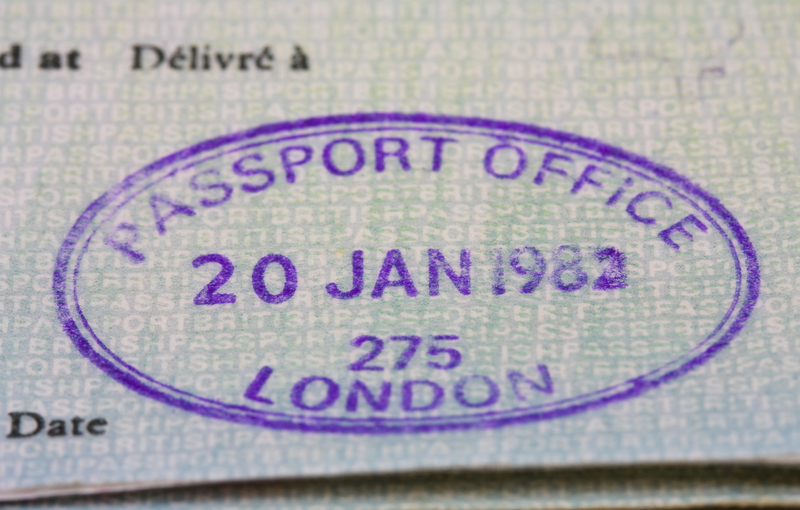The Critical Reasons to Avoid DIY Piano Moving
Posted on 29/05/2025
The Critical Reasons to Avoid DIY Piano Moving
When it comes to relocating large, fragile, and expensive instruments like pianos, many homeowners are tempted to save money by moving the piano themselves. However, the risks associated with DIY piano moving far outweigh the perceived savings. In this comprehensive article, you'll discover the critical reasons to avoid DIY piano moving, the possible consequences, and why professional expertise is essential for moving your cherished instrument safely.

Understanding the Complexity of Piano Moving
Pianos are not just heavy objects; they are finely tuned instruments with intricate mechanisms. Each part of a piano, from its delicate strings to the robust casing, is essential to its sound and function. Furthermore, these instruments can weigh anywhere from 300 pounds (for a spinet piano) to over 1,200 pounds (for a grand piano). This combination of bulk, fragility, and value makes moving a piano a uniquely challenging task.
Different Types of Pianos and Their Moving Challenges
- Upright Pianos: Typically weigh between 300-600 pounds. Their tall and narrow shape makes them awkward to maneuver through tight spaces or stairs.
- Grand Pianos: Can weigh up to 1,200 pounds or more. Their size requires special attention, disassembly, and extra manpower.
- Digital & Hybrid Pianos: While generally lighter, they can contain sensitive electronics that are easily damaged during improper handling.
Regardless of the type, each piano requires a specialized approach to ensure it remains in playable condition during and after the move.
The Top Dangers of DIY Piano Moving
Attempting a do-it-yourself piano move is fraught with hidden dangers. Here are some compelling reasons to avoid moving a piano yourself:
- Risk of Personal Injury: Pianos are extremely heavy and difficult to grip. Improper lifting techniques or inadequate support can easily lead to serious injuries such as back strains, crushed fingers, or even broken bones. According to injury statistics, the most common accidents during piano moves involve the spine, joints, and hands.
- Potential for Property Damage: The size and weight of a piano make it easy to lose control, resulting in dents in walls, fractured staircases, scratched flooring, or damaged door frames. Piano repairs and household repairs can quickly add up, costing far more than hiring professionals in the first place.
- Piano Damage: Pianos are extremely sensitive. Movement, bumps, or improper disassembly can cause serious internal and external damage, from collapsed tuning pins to snapped legs. Re-tuning or repairing a damaged piano can be expensive, and some damage may be irreparable.
- Lack of Specialized Equipment: Professional piano movers use special dollies, straps, ramps, and padding designed specifically for the safe transportation of heavy musical instruments. Most DIYers simply do not have access to this equipment or the knowledge to use it correctly.
- Insurance Issues: Most homeowners' insurance policies do not cover damage incurred during a DIY move. Professional piano moving companies are insured, ensuring your instrument is protected financially in the rare case of an accident.
- Improper Loading and Transit: It's not enough to get the piano out of your house - securing it in a moving truck without the proper tools and knowledge can lead to sliding, tipping, or falling, causing catastrophic damage en route.
- Difficulty Navigating Stairs and Narrow Spaces: Stairs, tight hallways, and sharp turns can turn a piano move into a dangerous ordeal. Professionals know how to navigate these obstacles safely and efficiently.
Financial Risks of Moving a Piano Yourself
Many assume that DIY piano moving saves money. However, the hidden costs often make it a much more expensive route. Here's why:
- Piano Repairs: Simple cosmetic or minor mechanical damage can cost hundreds or even thousands to repair.
- Home Repairs: Damaged walls, floors, or stairs due to a mishandled piano contribute to additional, often unforeseen, expenses.
- Medical Bills: Accidents and injuries from improper lifting or dropping the instrument can result in costly emergency medical treatment or lost income from time off work.
- Instrument Replacement: In the worst-case scenario, you might need to replace your piano entirely, a devastating financial and emotional loss.
In contrast, hiring professional piano movers includes services such as insurance coverage and specialized equipment, all at a fraction of the cost of repairing or replacing your beloved instrument.
Specialized Knowledge is Essential
The Art and Science of Piano Moving
Moving a piano successfully is a blend of technical knowledge, physical skill, and precise coordination. Professional piano movers are trained to:
- Disassemble and reassemble various types of pianos, including the safe removal of legs, lyres, and pedals
- Encase the instrument in padding and blanket wraps to protect the delicate finish and internal mechanics
- Use proper lifting techniques and teamwork to maintain balance and control at all times
- Secure the instrument using custom-fitted equipment during transit to prevent shifting and vibration damage
- Carry the piano through unconventional spaces, such as tight corners, sharp staircases, and narrow doorways, without causing harm to the instrument or property
Attempting to replicate these skills as an amateur is risky and often results in long-term consequences for both the piano and the people involved.
Why Insurance Matters
One of the key factors distinguishing professional services from DIY is the comprehensive insurance coverage provided by reputable movers. If an incident occurs during a professional move, their insurance will pay for repairs or replacement. Without this safety net, DIY movers are liable for any and all damages--not just to the piano, but to their home and themselves.
Piano Tuning and Stability After a Move
Even the most careful move can affect a piano's sensitive tuning. Pianos consist of thousands of parts working together in harmony, and a single jolt can knock them out of alignment. Professional piano movers understand this reality and often work with or recommend certified piano tuners to address any instability after the move. DIY movers are typically unaware of this crucial step, leaving the instrument less playable and potentially harmed for future musicians.
Additional Risks of DIY Piano Moving
Weather and Environmental Hazards
Pianos are sensitive to temperature and humidity changes. Exposing the instrument to rain, snow, or extreme temperatures - even briefly - can cause wood warping, finish damage, or tuning instability. Professional movers consider weather conditions and have tools and vehicles designed to shield the piano from environmental hazards, safeguarding your investment from unnecessary harm.
Legal and Liability Concerns
If you're planning to move a piano from an upper floor or through public spaces, you may require specific permits or insurance in case of accidents or injuries. In some situations, DIY movers have been held responsible for injuries sustained by friends or helpers during the move, leading to lawsuits and liability claims.
When Professional Piano Movers Make All the Difference
Given the critical reasons to avoid moving a piano on your own, it's easy to see how professionals offer peace of mind. Here's how a specialized piano moving company adds value:
- Experience: Years of hands-on experience with hundreds of piano moves, often in challenging configurations.
- Specialty Tools: From multi-wheeled piano dollies to stair climbing machines, the right tools prevent mishaps.
- Trained Teams: Movers coordinate lifting, communicating, and maneuvering like a choreographed team--something amateur helpers cannot replicate.
- Vehicle Compatibility: Trucks with proper climate control, tie-down anchors, and loading ramps further safeguard your piano in transit.
- Comprehensive Services: Many piano movers offer assembly, disassembly, placement, and initial tuning, providing start-to-finish care.
The Value of Your Piano--Monetary and Sentimental
A piano is not only a significant financial investment; it's also an object of immense sentimental value. Whether purchased new, passed down through generations, or discovered as a cherished antique, the instrument may hold memories and meaning beyond its dollar amount. Why risk damaging something so precious with a DIY move?
Smart Alternatives: How to Move Your Piano Safely
Now that you know the dangers and true costs of attempting to move a piano yourself, it's time to consider your best options:
- Research Reputable Piano Moving Companies: Look for specialists with verified experience, insurance, and positive reviews.
- Get a Written Estimate: Receive a detailed, transparent quote based on the type of piano, the distance, and the layout of both locations.
- Be Present During the Move: Consult with your movers on placement, conditions, and any concerns--professional teams welcome collaboration.
- Schedule a Post-Move Tuning: For best performance, hire a certified piano technician once the move is complete.

Frequently Asked Questions About Piano Moving
Can friends or family help me move my piano?
While well-intentioned, untrained helpers lack the skills and experience required for safe piano transport. Most injuries and damages occur in these scenarios.
How much does a professional piano move cost?
Professional piano moving services typically range from $150-$1,000 depending on the piano, location, distance, and complexity. This fee is far less than the cost of repairs or replacement due to DIY mistakes.
What happens if my piano is damaged during a professional move?
Legitimate piano movers carry full insurance, protecting you from financial loss should accidental damage occur.
Can I move a digital piano myself?
Digital pianos are lighter, but still contain sensitive electronics that can be damaged by improper handling. Whenever possible, let professionals handle your instrument.
Conclusion: Trust the Experts for Peace of Mind
Relocating your piano is a significant undertaking, and the risks of a do-it-yourself piano move are simply too high. With the dangers to your health, property, instrument, and wallet, it's clear that enlisting professional help is the smart choice. Trust the experts to protect your valuable piano--and enjoy the music for years to come.
For those considering a move, remember these critical reasons to avoid DIY piano moving. You'll save yourself from stress, injury, and avoidable damage by relying on those with the skills and experience to do the job right.
Latest Posts
Redesign Your Living Space by Decluttering Pre-Move
Expert Tips for Optimal Sofa Storage and Preservation
Declutter and clean: preparing your house for the next chapter



